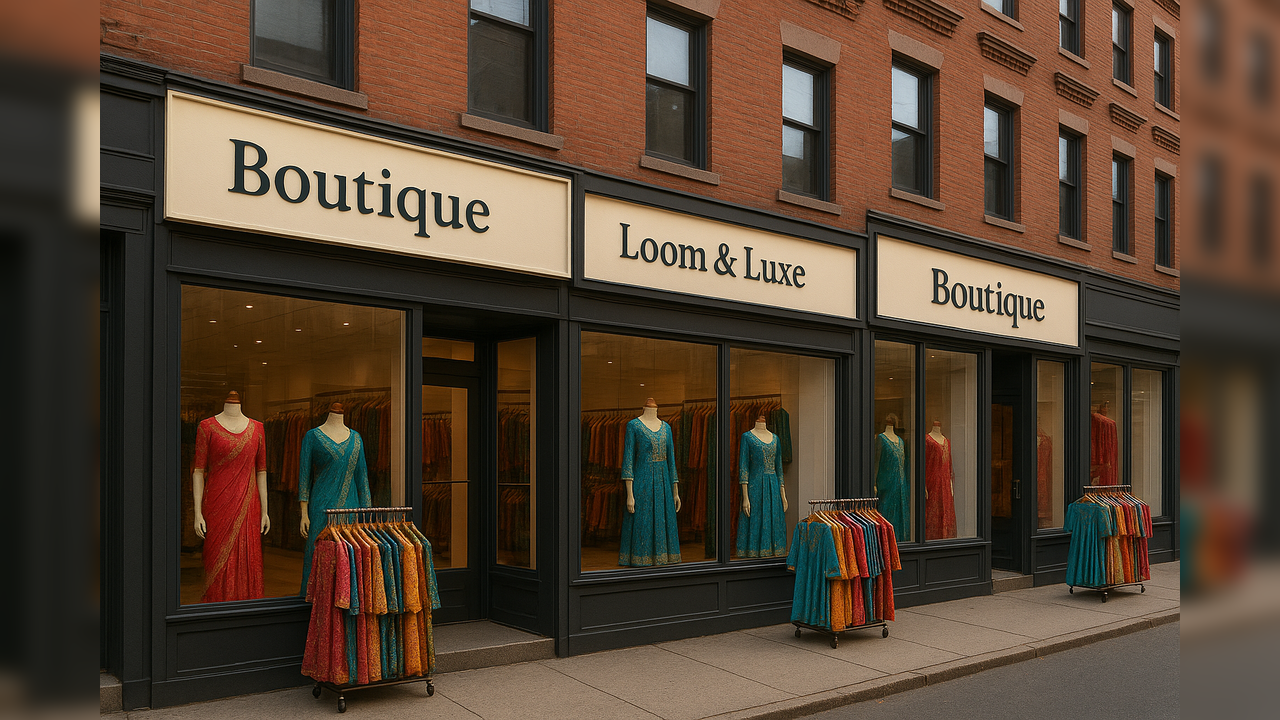
While many Indian-Americans traditionally lean Democratic, some along Oak Tree Road had backed Trump in hopes of a stronger local economy. (AI Generated Image)
For decades, Oak Tree Road transformed from a strip of rundown storefronts into one of the most vibrant South Asian business corridors in America. Known widely as “Little India,” the 1.5-mile district straddling Edison and Woodbridge now boasts more than 200 businesses, according to a report by The Wall Street Journal (WSJ), from jewelry chains to family-run sari shops, and draws customers from Maine to Maryland.
But the district’s success story faces its toughest test yet: President Donald Trump’s 50% tariffs on Indian imports. Since the levies took effect last month, small-business owners along Oak Tree Road say they are grappling with higher costs, shrinking margins, and uncertainty about whether they can survive, said a WSJ report.
“The economy here is plateauing or even going down,” said Mahesh Shah, vice chairman of the local Indian Business Association. “Smaller businesses may not survive.”
From Decline to Boom, and Back to Pressure
When Chaman Nayar first opened an Indian fabric shop here more than three decades ago, Oak Tree Road was dotted with boarded-up storefronts and high vacancies. Today, he owns a jewelry store and multiple properties, part of a district that helped push local retail rents above $36 per square foot this quarter, nearly double the broader area’s average, according to Otteau Group Inc.
The turnaround was driven by immigrant entrepreneurship, proximity to major transit hubs, and rising demand for Indian goods. Families from across the East Coast flock to the district for saris, sherwanis, spices, gold jewelry, and elaborate wedding services.
Now, those same businesses say they are being squeezed.
Tariffs Hit Weddings, Jewelry, and Food
Trump’s escalation of tariffs, coming despite Indian Prime Minister Narendra Modi’s high-profile visit to the White House earlier this year, has raised the cost of everything from artisanal wedding attire to basmati rice.
While many Indian-Americans traditionally lean Democratic, some along Oak Tree Road had backed Trump in hopes of a stronger local economy. The tariffs have complicated that calculation.
“A lot of the diaspora will rethink who they vote for next time,” said Shashank Gupta of Nazranaa. His father, a Trump voter, is now frustrated by the impact on their business.
Community Resilience
Despite the strain, few doubt Oak Tree Road’s cultural and economic pull. Edison’s population is nearly half Indian, and weddings remain lavish, multi-day affairs. Businesses are adapting, some absorbing costs, others raising prices selectively, and a few upcycling materials to keep goods affordable.
“We don’t know how long this is going to last,” said Nishi Singh, co-founder of Sajda bridalwear boutique. “But people will always want to celebrate their traditions.”
For now, “Little India” finds itself at the frontlines of America’s global trade war, caught between tariffs, tradition, and the fight to keep its unique cultural hub alive.